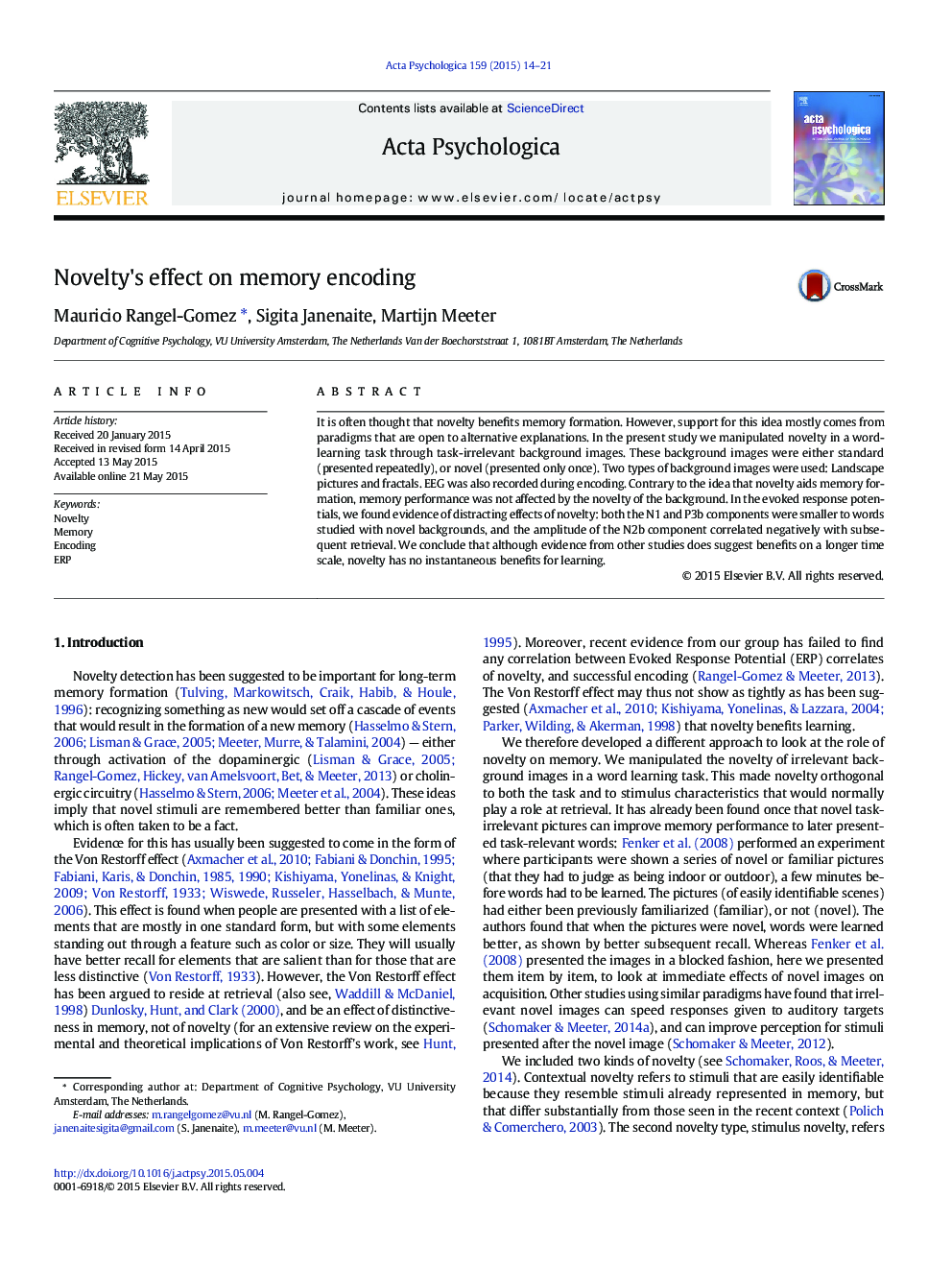| Article ID | Journal | Published Year | Pages | File Type |
|---|---|---|---|---|
| 919710 | Acta Psychologica | 2015 | 8 Pages |
•We manipulated encoding of words by changing the background (task irrelevant).•Backgrounds could be novel (presented once) or standard (repeated presentation).•Memory performance was not affected by the novelty of the background.•ERP differences indicate distracting effect of novel backgrounds.•Benefits of novel backgrounds to encoding are time dependent.
It is often thought that novelty benefits memory formation. However, support for this idea mostly comes from paradigms that are open to alternative explanations. In the present study we manipulated novelty in a word-learning task through task-irrelevant background images. These background images were either standard (presented repeatedly), or novel (presented only once). Two types of background images were used: Landscape pictures and fractals. EEG was also recorded during encoding. Contrary to the idea that novelty aids memory formation, memory performance was not affected by the novelty of the background. In the evoked response potentials, we found evidence of distracting effects of novelty: both the N1 and P3b components were smaller to words studied with novel backgrounds, and the amplitude of the N2b component correlated negatively with subsequent retrieval. We conclude that although evidence from other studies does suggest benefits on a longer time scale, novelty has no instantaneous benefits for learning.
